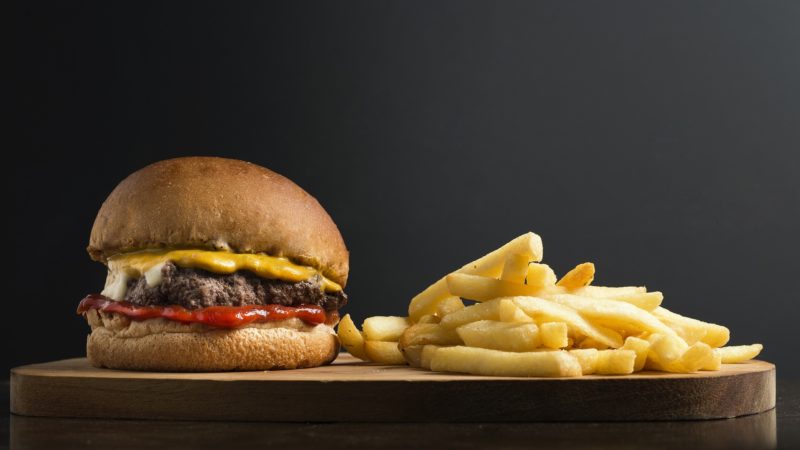
It’s ludicrous that the benefits of being a healthy weight are so well documented, yet the food industry operates in a way that makes it completely unsurprising so many people in the UK are overweight or obese. Last month, Labour supported Fizz-Free February to raise awareness of sugar-related obesity, but we know there are other factors too – like junk food marketing.
Recent early-stage analysis of advertising data for May 2018 done by Cancer Research UK found that on ITV1, Channel 4, Channel 5 and Sky One, around half (49%) of all food adverts shown between 6pm and 9pm in May 2018 were advertising high fat, salt or sugar (HFSS) products. And that fast food and delivery brands accounted for more than a quarter (27%) of those HFSS adverts.
This goes against NHS England’s Eatwell Guide, which recommends eating this kind of food less often and in small amounts. And at the other end of the scale, fruit and vegetables – which comprise one of the largest components of the guide – were the primary focus of just 5% of all food ad slots between 6pm and 9pm on those channels in May 2018.
As documented in a series of policy reports by Cancer Research UK, and their recent poster campaign around Westminster, we know these adverts work. They tell us teens who recall seeing junk food adverts every day are twice as likely to be obese.
Being bombarded with adverts for these foods doesn’t make it easy for young people to resist temptation. In fact, it increases the likelihood of them pestering their parents for unhealthy snacks by 22% per hour of commercial TV watched. Watching more than three hours a day makes them likely to eat an extra 520 snacks a year.
A child who is obese is five times more likely to remain so as an adult, and we know that more than a quarter of children are overweight or obese. Being overweight or obese can cause serious health problems, such as diabetes and heart disease, and it is the biggest preventable cause of cancer after smoking in the UK – linked to 13 types of cancer. Obesity costs the NHS approximately £5.1bn a year. With services already at breaking point, this is not a cost we cannot afford.
The launch of the mayor of London’s ban on junk food advertising across the Transport for London estate is a brave and bold move to remove temptation from our children’s lives. But it’s vital that government also sticks to its promise to deliver the second chapter of the childhood obesity plan which sets a new national ambition to halve childhood obesity by 2030.
Part of this plan includes introducing a ban on all TV adverts for HFSS food before 9pm and equivalent restrictions online. This is something Labour promised in our manifesto for the 2017 election and continues to push for. It’s about time the government made good on its word to protect our kids from a barrage of unhealthy food adverts every time they watch primetime TV or surf the internet.




More from LabourList
Antonia Romeo appointed to lead civil service as new Cabinet Secretary
‘If Labour is serious about upskilling Britain, it must mobilise local businesses’
Stella Tsantekidou column: ‘What are we to make of the Labour Together scandal?’